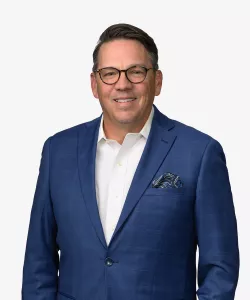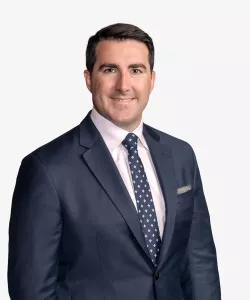DOJ Issues Guidance on Ability-to-Pay in False Claims Act Cases
Headlines that Matter for Companies and Executives in Regulated Industries
DOJ Issues Guidance on Ability-to-Pay in False Claims Act Cases
On October 8, 2019, Assistant Attorney General Brian Benczkowski announced new guidance for federal prosecutors evaluating whether a corporation is unable to pay a proposed monetary penalty or fine, entitled “Evaluating a Business Organization’s Ability to Pay a Criminal Fine or Criminal Monetary Penalty.” This guidance, issued as part of DOJ’s initiative to provide increased transparency in corporate enforcement actions, joins previously issued guidance on compliance programs and monitorships.
According to the memorandum, which was issued to all criminal division personnel, federal prosecutors may assess a corporation’s inability only after DOJ and the corporation have agreed on an appropriate criminal resolution and monetary penalty based on the facts of the matter and law. The burden of establishing an inability to pay rests with the corporation making the claim, and the corporation must cooperate fully by providing access to company personnel responsible for responding to prosecutors’ inquiries. According to a two-page “Inability to Pay Questionnaire,” attached to the guidance, prosecutors evaluating an inability to pay claim should request, among other items, all cash flow projections, all operating budgets and projections, capital budgets and/or projections of annual capital expenditures, any restructuring plans, liens on the company’s assets, audited financial statements, federal corporate income tax returns, and current credit and loan agreements. The guidance recognizes that in more complex situations, it may be necessary for prosecutors to also consider such factors as the background behind the corporation’s current financial condition, its alternative sources of capital, any collateral consequences, and victim restitution considerations. Any reduction to a fine requires approval of the prosecutor’s section chief, and if the proposed reduction is greater than 25%, then prosecutors need approval from the assistant attorney general in charge of the criminal division or his/her designee.
Although the U.S. Sentencing Guidelines and federal statutes contemplate a corporation’s inability to pay fines and/or penalties, this guidance fills a void of DOJ guidance on the issue and provides greater clarity for corporations.
A copy of the guidance can be found here.
Hospital Case Manager Pled Guilty to Kickback Conspiracy
On October 10, John Eby, a registered nurse, pled guilty to conspiring with owners of home health agencies to receive illegal kickbacks in exchange for Medicare beneficiary referrals. As case manager at a nonprofit hospital in Sacramento, California, Eby assisted Medicare beneficiaries in selecting post-acute care providers, such as home health care and hospice agencies. Eby steered Medicare beneficiaries to specific home health agencies and, in turn, was paid illegal kickbacks by the home health agency owners for the beneficiary referrals. Medicare paid the home health care and hospice agencies involved approximately $250,000 for services allegedly provided to the 55 beneficiaries Eby referred in exchange for kickbacks. Eby also pled guilty to one count of receipt of healthcare kickbacks for accepting a $1,000 cash kickback for his referral of five Medicare beneficiaries to another home health agency. Eby faces a maximum of five years in prison for the conspiracy charge and 10 years in prison for the kickback charge in addition to a fine of $250,000 or twice his gross gain or loss for each charge.
Read the DOJ press release here.
Savannah Doctor Found Guilty of Healthcare Fraud and Illegally Dispensing Drugs
On October 11, a Savannah doctor was found guilty on three counts of healthcare fraud and thirteen counts of unlawful dispensation of controlled substances by a federal jury in the Southern District of Georgia after a three-and-a-half day trial. According to the evidence presented at trial, Dr. Frank Bynes, Jr., who worked at Georgia Laboratory Diagnostic and MBA Community Clinic, wrote prescriptions for narcotics, including the “holy trinity” drug cocktail of alprazolam, Soma, and opioids to his patients, despite knowing multiple patients had suffered from an overdose. This drug cocktail was prescribed by Dr. Bynes to Medicare patients more frequently than any other physician in the United States, as well as to patients addicted to controlled substances. Dr. Bynes’s convictions for healthcare fraud stem from his submission of over $2 million in fraudulent pharmacy claims to Medicaid, Medicare, and Tricare.
Read the DOJ press release here.
Iowa Doctor To Pay $1 Million to Resolve False Claim Allegations
An otolaryngologist, Dr. Tracey Wellendorf, in Northwest Iowa agreed to pay $1,000,000 to resolve False Claims Allegations concerning approximately 115 procedures she performed on Medicaid beneficiaries during a 13-month span from October 13, 2014 to November 27, 2015. Dr. Wellendorf is alleged to have submitted claims for endoscopic sinus surgeries that were either not medically necessary or incorrectly coded for payment. Dr. Wellendorf entered into an agreement with the Department of Health and Human Services Office of Inspector General that requires her to engage in enhanced compliance measures for three years.
Contacts
- Related Industries
- Related Practices







